Crypto Recap
Feb 2, 2025
Weekly Crypto Recap (Jan 30th - Feb 2nd)
What happened to RUNE?
TRUMP Solana Token Falls After President's 'Pump' Post, While Bitcoin and Dogecoin Dip

Background
President Donald Trump’s Solana-based meme coin, TRUMP, hit a new post-inauguration low following a social media post from Trump, which many saw as an attempt to boost the flailing token. The token's price fell sharply, mirroring broader market declines in Bitcoin, Dogecoin, and other major cryptocurrencies.
Key Points
TRUMP Token's Price Drop – TRUMP fell to a new low of $19.09 on Saturday, marking the lowest price since Trump’s return to the White House. This drop was part of a broader market downturn, including Bitcoin, Dogecoin, and others.
Trump's Social Media Post – Trump posted on Truth Social, saying, "I LOVE $TRUMP!!" and linking to the token’s website, which many saw as an attempt to "pump" the price of his meme coin. This move sparked criticism from figures like Anthony Scaramucci, who accused Trump of trying to artificially inflate the token's value.
70% Decline Since Peak – TRUMP has dropped more than 70% from its peak of over $73 in January, continuing its downward trend after Melania Trump launched her own coin. The token's daily trading volume has also plummeted by 90% since the inauguration.
- Market Impact – The meme coin market remains volatile, with TRUMP's decline contributing to broader market losses, including a 3% drop in Bitcoin and a 9% fall in Dogecoin over the past 24 hours.
Key Takeaway
TRUMP's attempt to gain traction through Trump's social media post only led to further declines, highlighting the volatile nature of meme coins and the broader uncertainty in the crypto market, especially amid concerns over trade tariffs and other macroeconomic factors.
Indian Crypto Holders Face 70% Tax Penalty on Undisclosed Gains
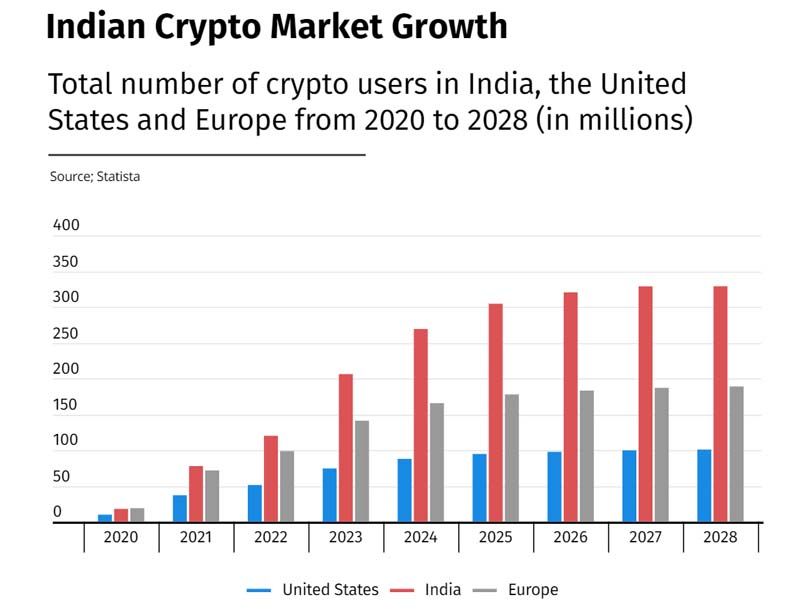
Background
India’s new tax regulations will impose significant penalties on undisclosed cryptocurrency gains. The amendments under Section 158B of the Income Tax Act will treat cryptocurrency like traditional assets such as money, jewelry, and bullion, subjecting it to block assessments if gains are not reported.
Key Points
Tax Reporting Obligations – Cryptocurrencies will now be classified as Virtual Digital Assets (VDAs) and must be reported under new tax provisions. The tax treatment of undisclosed crypto income will be aligned with other traditional assets.
Retrospective Application – The amendments will apply retroactively from February 1, 2025, and any undisclosed crypto profits could attract penalties.
70% Penalty on Undisclosed Gains – Indian authorities may impose a 70% penalty on previously undisclosed crypto profits, covering up to 48 months of unreported income.
- Regulatory Pressure on Exchanges – India has already demanded unpaid taxes from crypto exchanges, including Binance, and Bybit suspended its services in India, citing regulatory pressures.
Key Takeaway
India’s new tax amendments significantly raise the stakes for crypto traders, with heavy penalties for undisclosed gains and broader regulatory scrutiny targeting exchanges. This move reflects the global tightening of crypto tax regulations and could push investors towards decentralized platforms.
Bitcoin Falls Below $100K Following Donald Trump Imposing Import Tariffs
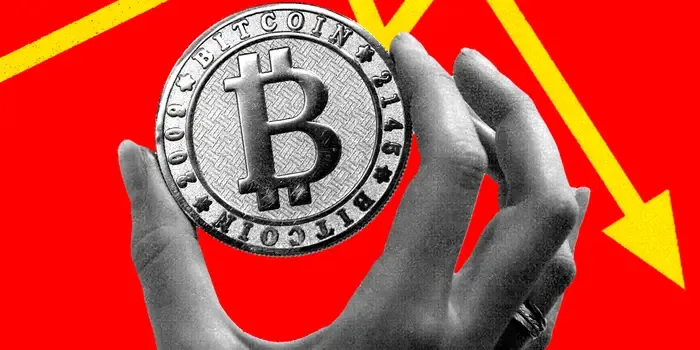
Background
Bitcoin dropped below $100,000 for the first time since January 27, following President Donald Trump’s executive order imposing import tariffs on goods from China, Canada, and Mexico. The tariffs sparked immediate retaliation from these countries, adding uncertainty to the broader market.
Key Points
Bitcoin's Price Drop – Bitcoin fell to $99,111, slipping below the $100,000 mark as a response to the tariffs, which raised concerns about potential inflation and interest rate hikes.
Trump's Tariff Announcement – Trump imposed a 25% tariff on imports from Canada and Mexico and a 10% tariff on goods from China, aiming to hold these countries accountable for promises related to immigration and drug control.
Retaliation from Affected Countries – Canada, China, and Mexico immediately retaliated, with Canada imposing tariffs on $106.5 billion worth of U.S. goods, and China and Mexico planning their own countermeasures.
Market Reaction – The tariffs raised concerns over inflation and interest rate increases, which typically lead to investors moving away from riskier assets like crypto to more traditional options such as bonds and term deposits.
- Crypto Industry Divided – The crypto community is divided on the impact of the tariffs, with some crypto commentators believing the situation could negatively affect the market, while others argue the impact may be minimal in the long run.
Key Takeaway
Bitcoin’s drop below $100,000 reflects the broader uncertainty caused by Trump’s tariffs and their potential economic impact. While the crypto community remains split, the situation underscores the sensitivity of crypto to global economic shifts and policy changes.
Kraken to Delist Tether USDT, 4 Other Stablecoins in Europe

Background
In compliance with the European Union's Markets in Crypto-Assets Regulation (MiCA), Kraken will delist Tether’s USDT and four other stablecoins in the European market. This move is part of Kraken’s effort to remain compliant with the evolving regulatory landscape in Europe.
Key Points
Delisting of Non-MiCA-Compliant Stablecoins – Kraken will remove USDT, PayPal USD, Tether EURt, TrueUSD, and TerraClassicUSD from the European market by March 31, 2025.
Gradual Delisting Process – The delisting will take place in stages:
Feb. 13: Margin pairs will be set to “reduce-only” mode for EEA clients.
Feb. 27: Affected tokens will be in “sell-only” mode, preventing new deposits but still allowing trading.
March 24: Spot trading for these assets will stop, and all open orders will be closed.
March 31: Any remaining holdings will be converted to an equivalent MiCA-compliant stablecoin.
Impact on EEA Clients – The delisting will only affect clients in the European Economic Area (EEA), which includes 30 countries like Austria, Cyprus, and Portugal.
- Compliance with ESMA Recommendations – Kraken's approach follows the European Securities and Markets Authority (ESMA)'s guidance to ensure a smooth and orderly transition, avoiding disruptions in the crypto market.
Key Takeaway
Kraken’s delisting of non-MiCA-compliant stablecoins is a significant move towards aligning with European regulations. The gradual process aims to minimize market disruption while ensuring that Kraken continues to offer secure, compliant services to its European users.
Dogwifhat Claims ‘No Intent to Mislead’ in Vegas Sphere Plan

Background
Dogwifhat, a Solana-based memecoin, has responded to concerns surrounding its “Sphere Wif Hat” initiative, a crowdfunding campaign launched to get the token’s logo displayed on the Las Vegas Sphere. Despite raising $700,000 in the early stages, the project has faced delays, prompting an official statement clarifying its intentions and plans moving forward.
Key Points
Fundraising Success and Delays – The “Sphere Wif Hat” campaign raised $700,000 in a matter of days when it launched in March 2024, but the token's logo has yet to appear on the Las Vegas Sphere.
Ongoing Negotiations – Dogwifhat’s official account stated that the project’s organizers are still in negotiations with various parties to finalize the advertisement placement and timeline for the display.
Refunds if Plan Fails – If the ad placement is not executed as planned, all donations made to the campaign will be refunded. The organizers emphasized that there was no intent to mislead any contributors.
- WIF Token’s Price Decline – After reaching an all-time high of $4.85 following the fundraiser, the token has since dropped by nearly 77%, with the price currently at $1.12.
Key Takeaway
Dogwifhat reassures supporters that the delays in the Las Vegas Sphere ad campaign are due to ongoing negotiations and not misleading actions. Despite the price drop, the project remains committed to fulfilling its initial plan and will refund all donors if the ad placement does not occur.
Uniswap v4's Five Big Upgrades

Background
Uniswap v4 has launched with a focus on gas optimization and pool customization. The launch across 12 chains introduces significant improvements, including cheaper pool creation and new features that enable developers to create more flexible and efficient decentralized applications (dApps). Here are the five key upgrades.
Key Points
Cheaper Pool Creation – In v4, creating a pool is now 99.99% cheaper than in previous versions, thanks to the introduction of a singleton contract that handles pool creation and state tracking, eliminating the need for separate contracts.
Native ETH Support – Users can now swap native ETH directly on Uniswap without needing to wrap it first, saving up to 15% in gas costs.
Lowering Swapping Costs – The singleton contract design also helps reduce costs by allowing swaps between tokens that don't have a liquidity pool without requiring multiple smart contract interactions.
Introduction of Subscribers – Liquidity providers (LPs) can now subscribe to a contract that tracks their liquidity positions, eliminating the need to transfer ownership of liquidity receipts. This improves security and simplifies rewards management.
- Welcome Hooks – Hooks allow developers to add external smart contracts to any pool for customized pool features, such as redeploying idle liquidity into other protocols for additional yield.
Key Takeaway
Uniswap v4 brings groundbreaking features such as cheaper pool creation, native ETH support, and customizable liquidity management. These upgrades are set to revolutionize the decentralized exchange space by providing lower costs, greater flexibility, and new tools for developers to enhance the user experience.
21Shares Files for a Spot Polkadot ETF, Marking a First as It Looks to Get the US SEC Signoff

Background
21Shares, a firm focused on exchange-traded funds (ETFs), has filed for the first-ever spot Polkadot ETF with the U.S. Securities and Exchange Commission (SEC). This Polkadot Trust would track the performance of DOT, the native token of the Polkadot Network, and is set to trade on the Cboe BZX Exchange.
Key Points
First Spot Polkadot ETF – 21Shares filed a registration statement for the 21Shares Polkadot Trust, marking the first spot Polkadot ETF. The fund will track the performance of DOT, the Polkadot Network's token.
Custody and Trading – Coinbase Custody Company will hold the DOT assets for the ETF. The fund is expected to trade on the Cboe BZX Exchange.
Regulatory Context – This filing comes amid growing interest in crypto ETFs in the U.S., as regulatory dynamics shift, particularly after the SEC's approval of spot Bitcoin ETFs and spot Ethereum ETFs under new leadership.
- Market Activity – Tuttle Capital also recently filed for 10 leveraged crypto ETFs, one of which tracks Polkadot, signaling increasing competition in the space.
Key Takeaway
21Shares’ filing for a spot Polkadot ETF represents a major step in the growing U.S. crypto ETF market. As regulatory outlooks evolve, the approval of this ETF could set a precedent for more spot crypto ETFs in the future, potentially attracting more institutional investors to Polkadot and other digital assets.
Pump.fun Slammed With Lawsuit For Violating US Securities Laws

Background
Pump.fun, a platform for creating and launching tokens on the Solana blockchain, has been hit with a class action lawsuit alleging violations of US securities laws. The lawsuit was filed by user Diego Aguilar on January 30 in the Southern District of New York Court, claiming losses from investments in three memecoins promoted by Pump.fun.
Key Points
Lawsuit Details – Diego Aguilar is suing Baton Corporation Limited (the company behind Pump.fun) and its founders, alleging that Pump.fun promoted and sold unregistered securities through the marketing of FRED, FWOG, and GRIFFAIN memecoins.
Securities Violations – Aguilar’s lawsuit accuses Pump.fun of violating federal securities laws by promoting speculative interest in these tokens, extracting nearly $500 million in fees from selling these unregistered assets.
Marketing Tactics – The lawsuit claims that Pump.fun utilized aggressive marketing strategies, including working with influencers to drive the adoption of these unregistered securities, and alleges the platform operates similarly to Ponzi schemes or pump and dump tactics.
- Previous Legal Action – This lawsuit adds to a history of legal challenges for Pump.fun, including other lawsuits related to the PNUT token and HAWK token.
Key Takeaway
The lawsuit against Pump.fun highlights the increasing scrutiny of crypto platforms involved in promoting unregistered securities. If successful, it could set a precedent for more regulatory oversight on platforms that facilitate the creation and promotion of speculative digital assets.
Tether Reports $13 Billion Profit for 2024, Boosts U.S. Treasury Holdings to $113 Billion and Expands to El Salvador
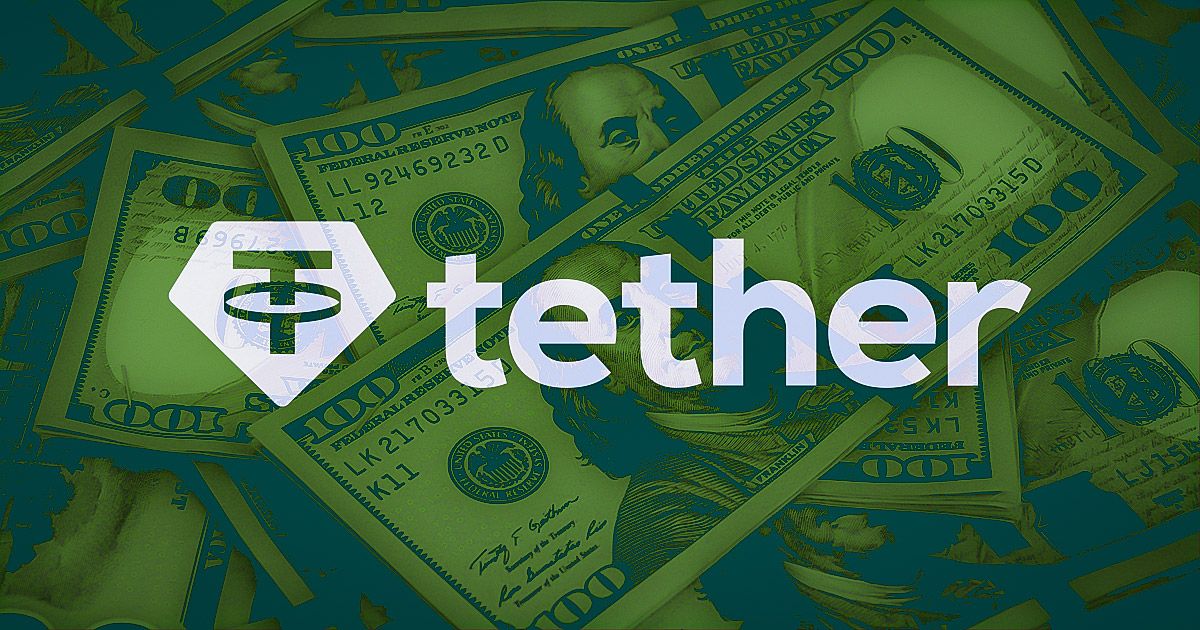
Background
Tether Holdings Limited has reported a record-breaking $13 billion net profit for 2024, with $6 billion of that profit generated in the fourth quarter. The company’s total assets reached $157.6 billion, and its U.S. Treasury holdings climbed to an all-time high of $113 billion, solidifying its position as one of the largest global holders of U.S. Treasuries. Tether also made significant strides in its global expansion, securing a stablecoin issuer and Digital Asset Service Provider (DASP) license in El Salvador.
Key Points
Record-Breaking Profit – Tether achieved a $13 billion profit for 2024, with $6 billion coming in Q4, marking its highest-ever earnings.
U.S. Treasury Holdings – The company’s exposure to U.S. Treasuries reached $113 billion, positioning Tether among the largest global holders of U.S. government debt.
Excess Reserve Buffer – Tether saw a 36% increase in its excess reserve buffer, now surpassing $7 billion, reflecting its strong financial position.
New USD₮ Tokens Issued – Throughout 2024, Tether issued $45 billion in new USD₮ tokens, contributing to its substantial growth.
Diversified Investments – The company’s strategic investments in sectors such as renewable energy, Bitcoin mining, AI, telecommunications, and education helped boost its equity, which surpassed $20 billion.
- Expansion to El Salvador – Tether International SA de C.V. received its stablecoin issuer and DASP license in El Salvador, marking a major step in its global expansion.
Key Takeaway
Tether's record profits and significant growth in U.S. Treasury holdings underscore its robust financial performance and market leadership. Its global expansion into El Salvador and strategic investments in diverse sectors position Tether for continued success in the evolving digital asset space.
The Daily: Elon Musk's Dad Seeks to Make $200 Million from 'Musk It' Memecoin, UK Gang Jailed for Crypto Extortion and More

Background
In today’s update from The Daily, we cover Elon Musk’s father, Errol Musk, entering the memecoin market with a new Solana-based token called "Musk It", a UK crypto extortion gang jailed for a £100,000 cryptocurrency ransom, and Purpose Investments filing for the world’s first spot XRP ETF.
Key Points
Musk It Memecoin Launch – Errol Musk and his partner Nathan Browne aim to raise $150-200 million from the “Musk It” memecoin. Since his endorsement, the token’s value has surged 400% in just 24 hours. The project is designed to fund Musk Institute, a think tank focused on flying vehicles and other scientific pursuits.
UK Crypto Gang Jailed – A UK gang has been sentenced to a total of 76 years in prison for kidnapping and extorting £100,000 ($125,000) in cryptocurrency. The victim suffered prolonged abuse, including being beaten and confined, until police intervened in December 2023.
- Purpose Investments XRP ETF – Purpose Investments has filed for a preliminary prospectus to launch the **world’s first spot XRP ETF, a move that could have significant implications for XRP investors and crypto market regulation.
Key Takeaway
The launch of “Musk It” memecoin signals a growing trend of celebrity-backed crypto projects, while the UK crypto extortion case highlights the dangers of illegal activity in the crypto world. Purpose Investments' ETF filing adds to the continuing growth of crypto financial products, with XRP gaining further institutional attention.
Trump’s World Liberty Financial Buys Another $10M Worth of ETH

Background
World Liberty Financial, the Trump family’s decentralized finance (DeFi) platform, has continued its crypto purchasing spree, making a $10 million purchase of Ether (ETH). This brings its total ETH holdings to 66,239 ETH, valued at approximately $225 million. The platform, which has strong ties to the Trump family, is expanding its digital asset portfolio amid ongoing market growth.
Key Points
$10M ETH Purchase – On January 31, World Liberty Financial made another $10 million purchase of ETH, bringing its total holdings to 66,239 ETH.
Previous Purchases – This comes after another $10 million ETH purchase just days earlier on January 28. The platform has also acquired other assets, including Wrapped Bitcoin (WBTC), Tron (TRX), Chainlink (LINK), and Aave (AAVE).
DeFi Platform’s Growth – Introduced in September 2024, World Liberty Financial has strong connections to the Trump family, with Donald Trump listed as Chief Crypto Advocate and his sons Eric and Donald Jr. serving as Web3 Ambassadors.
Criticism – The platform faced criticism after purchasing $2 million worth of Movement (MOVE) tokens just before it was revealed that Elon Musk’s Department of Government Efficiency had contacted Movement Labs, raising concerns about potential insider trading.
- ETH Market Performance – Despite World Liberty Financial’s buying spree, ETH has faced struggles in January. Historically, ETH has performed well in February and March during bull markets, but its price has struggled in January 2025, with discussions ongoing within the Ethereum community about leadership and future upgrades like the Pectra upgrade.
Key Takeaway
World Liberty Financial's continued investments in ETH and other cryptocurrencies underscore its commitment to expanding its crypto footprint, despite the Ethereum network’s current challenges. As the platform aligns itself with the Trump family’s growing involvement in the crypto space, its ETH purchases may prove to be well-timed, potentially positioning it for future growth if ETH rallies in the coming months.
LayerZero CEO Announces Settlement with FTX Estate
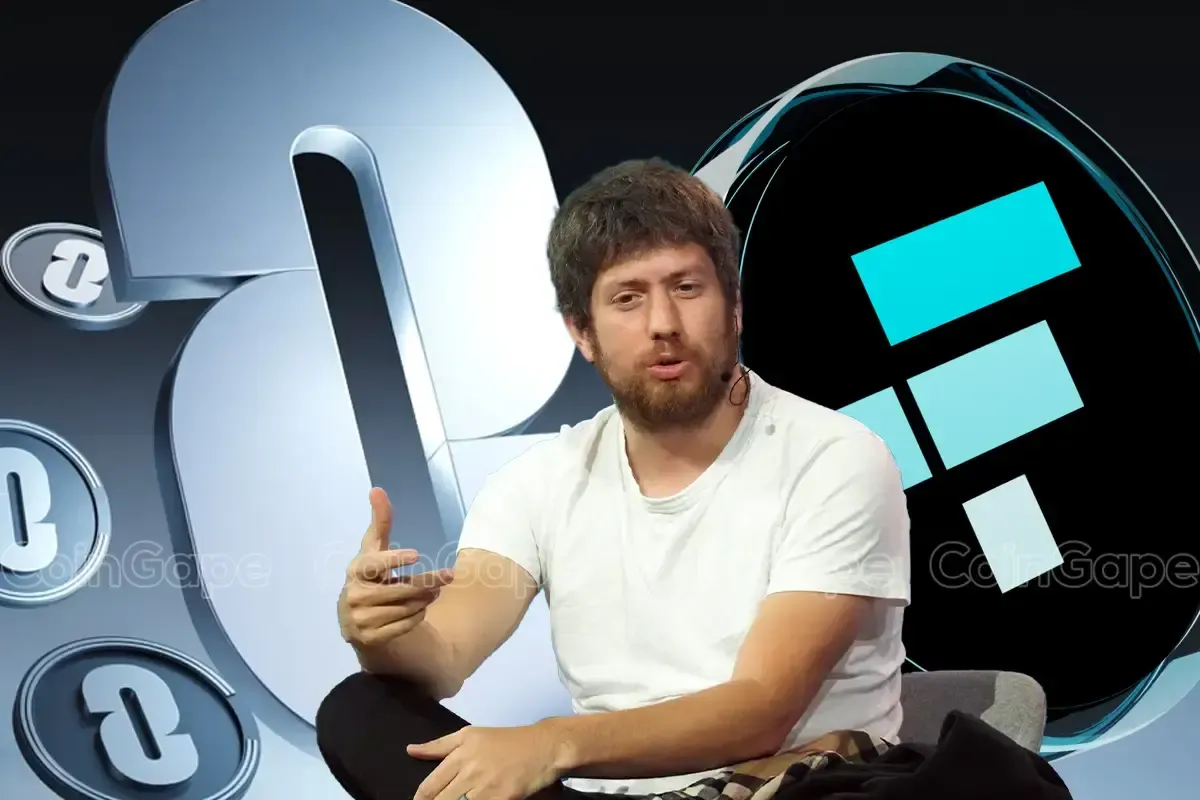
Background
Bryan Pellegrino, co-founder and CEO of LayerZero Labs, announced that the company has reached a settlement with the FTX estate regarding transactions made in 2022 with Alameda Ventures, FTX's venture capital arm. The settlement resolves a lawsuit that sought $21 million from LayerZero, stemming from fund withdrawals prior to the collapse of FTX in November 2022.
Key Points
Settlement Details – After millions in legal fees and two years of litigation, LayerZero has reached an agreement with the FTX estate. The settlement involves the return of the repurchased equity stake in the crosschain protocol to the estate.
Alameda Ventures Transaction – In 2022, Alameda Ventures had agreed to purchase a 5% stake in LayerZero, sending $70 million and purchasing $25 million worth of STG tokens.
FTX Lawsuit – The FTX estate had sought $21 million from LayerZero as part of a lawsuit, accusing the platform of negotiating a fire-sale transaction during Alameda’s liquidity crisis.
Equity and Token Deals – LayerZero sought to buy back the equity and planned to purchase the STG tokens for $10 million, but Alameda never transferred the tokens and no funds were sent.
- FTX Estate Reorganization – The FTX estate's reorganization plan took effect on January 3, allowing users with claims under $50,000 to be repaid within 60 days.
Key Takeaway
LayerZero's settlement with the FTX estate marks the conclusion of a lengthy legal dispute, with the company returning the equity stake and resolving the lawsuit over alleged unfair transactions. As FTX’s estate continues its efforts to recover assets and repay creditors, this settlement highlights the ongoing fallout from FTX’s collapse and the broader crypto industry’s legal battles.
VIRTUAL Surges 28% as Upbit Listing Exposes the Token to Altcoin-Savvy South Koreans
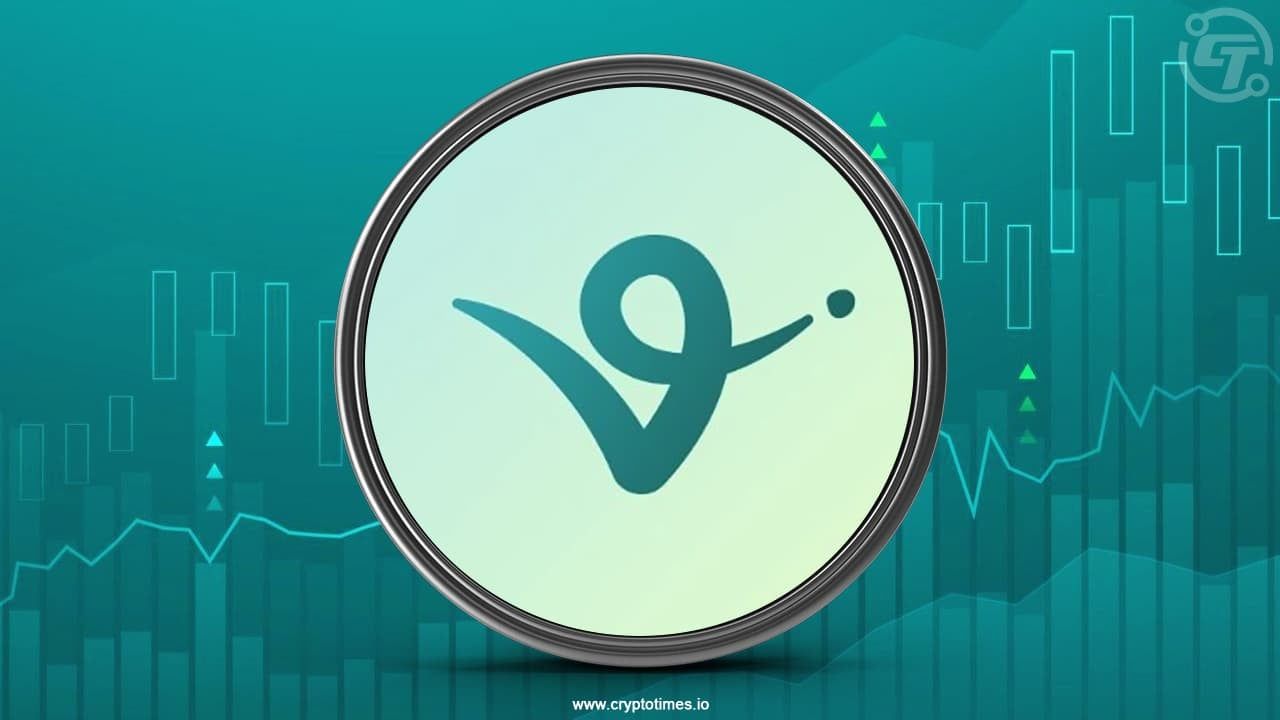
Background
The VIRTUAL token, native to the Virtuals Protocol, an AI launchpad platform, saw a 28% price surge following its listing on Upbit, South Korea’s leading cryptocurrency exchange. The token's increased exposure to South Korean traders helped it gain significant momentum, reaching $2.61 during European trading hours.
Key Points
Upbit Listing – Upbit announced support for trading pairs of VIRTUAL with KRW, USDT, and BTC, giving the token access to altcoin-savvy South Korean traders.
Price Surge – VIRTUAL saw a 28% rise, almost testing the downtrend line from its January 2 record high of $5.25.
Virtuals Protocol Expansion – Virtuals Protocol is a Base-native platform that recently expanded to Solana through LayerZero, launching a Meteora pool to boost trading and engagement. The protocol also created a SOL reserve by converting 1% of trading fees into SOL.
- Token Buyback Program – Early in January 2025, Virtuals Protocol announced a buyback and burn program for 13 million VIRTUAL tokens, which were accumulated through post-bonding trading income.
Key Takeaway
VIRTUAL’s surge is driven by the Upbit listing, which exposed the token to a broader audience, particularly in South Korea, known for its altcoin trading activity. With continued expansion to Solana and an innovative buyback and burn program, VIRTUAL is positioning itself for further growth within the crypto and AI agent generation sectors.
Hyperliquid Flips Ethereum in Fees and Revenue as Token Rallies

Background
Hyperliquid, a Layer 1 blockchain powered by its decentralized derivatives platform, surpassed Ethereum in daily fees and revenue on January 28, 2025. The platform’s token, HYPE, has also experienced a surge in value, reflecting increased activity and growing market optimism.
Key Points
Fee and Revenue Surpass Ethereum – Hyperliquid processed $1.93 million in fees and revenue, outpacing Ethereum’s $1.82 million in fees and $1.12 million in revenue.
Protocol Ranking – Hyperliquid now ranks 11th in DeFiLlama's list of protocols and chains by fees and revenue, joining the ranks of top Layer 1 chains like Ethereum, Solana, and Tron.
HYPE Token Surge – HYPE token is up 15%, reaching $27.5 from $24 in just 24 hours, driven by the platform's growing activity and strong market momentum.
Spot Token Growth – Hyperliquid’s native memecoin, PURR, is also experiencing a rise, with a 15% increase on the day, pushing its market capitalization to $130 million.
- HyperEVM Launch and Dual-Block Architecture – The upcoming release of Hyper EVM aims to transform Hyperliquid from a derivatives and spot DEX into a fully functional DeFi ecosystem. Additionally, the team announced that HyperEVM will transition to a dual-block architecture on its testnet, improving both block speed and size.
Key Takeaway
Hyperliquid’s surge in fees, revenue, and token price signals growing momentum, placing it as a strong competitor in the Layer 1 blockchain space. With the launch of HyperEVM and the introduction of dual-block architecture, the platform is poised to expand its offerings and attract even more users and developers to its ecosystem.
Sam Bankman-Fried's Parents Seek Trump Pardon for Their Son: Report

Background
Sam Bankman-Fried's parents, Joseph Bankman and Barbara Fried, are reportedly seeking a presidential pardon from President Donald Trump for their son, who was sentenced to 25 years in prison for defrauding investors in the collapse of FTX. While it’s unclear whether they’ve formally contacted the White House, their efforts follow other high-profile attempts to secure pardons for incarcerated figures, such as Silk Road founder Ross Ulbricht.
Key Points
Pardon Attempt – Joseph Bankman and Barbara Fried are actively working to secure a pardon for Sam Bankman-Fried, who was convicted of defrauding billions from investors.
Comparisons to Ulbricht – The pardon attempt mirrors the successful pardon of Ross Ulbricht, who was freed by Trump after serving 11 years for operating the Silk Road marketplace.
Political Ties – Sam Bankman-Fried was a major donor to Joe Biden's 2020 campaign, contributing $5.2 million, which could complicate his chances of receiving a pardon from Trump.
- Pardon Odds – Despite the attempts, Bankman-Fried’s chances of receiving a presidential pardon are considered low. On Polymarket, a decentralized prediction market, his odds stand at 6%, compared to 95% for Ulbricht’s pardon.
Key Takeaway
While Sam Bankman-Fried’s parents are seeking a pardon from President Trump, the political context surrounding his case, combined with low odds on prediction markets, suggest that the likelihood of a pardon remains uncertain.
Czech National Bank Approves Proposal to Study Bitcoin as Reserve Asset
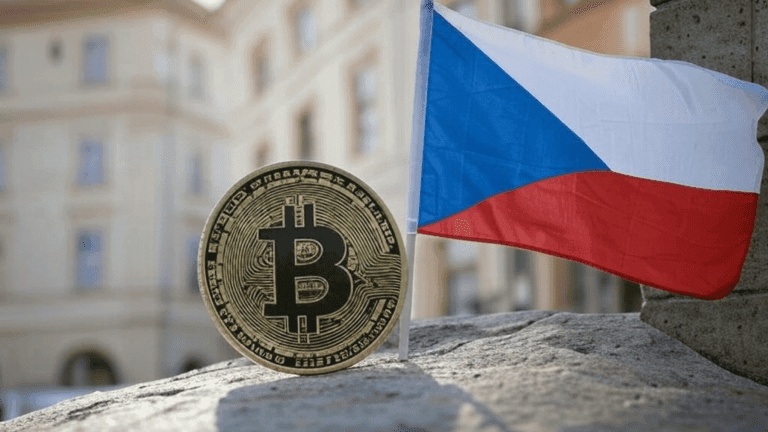
Background
The Czech National Bank (CNB) has approved a proposal to explore the possibility of adding bitcoin to its reserves. The proposal, initiated by CNB Governor Aleš Michl, aims to diversify the bank's asset portfolio and consider bitcoin as a potential reserve asset. However, the idea has faced resistance from Czech finance officials and European Central Bank (ECB) President Christine Lagarde, who have expressed skepticism about bitcoin's stability as a reserve asset.
Key Points
Proposal to Diversify Reserves – The Czech National Bank has agreed to study the possibility of investing in alternative assets, including bitcoin, as part of its reserve diversification strategy.
Governor Michl’s Interest – Aleš Michl, the CNB Governor, expressed his interest in potentially adding bitcoin to the bank’s balance sheet, emphasizing that if bitcoin proves to be a valuable asset for diversification, the bank should consider it.
Resistance from Finance Minister and ECB – The proposal has met with resistance from Finance Minister Zbynek Stanjura, who questioned bitcoin's stability as a reserve asset, and Christine Lagarde, President of the European Central Bank, who remains confident that bitcoin will not become part of the assets for any EU central bank.
- Czech Republic's Position – Although Czech Republic is a member of the EU, it does not use the euro and is thus not bound by the same regulations as countries in the Eurozone.
Key Takeaway
The Czech National Bank's exploration of bitcoin as a potential reserve asset represents a significant step in the ongoing discussion of cryptocurrencies in central bank portfolios. Despite opposition from key figures like Christine Lagarde and Zbynek Stanjura, the CNB's decision to study the asset could pave the way for further discussions on bitcoin's role in national and regional reserves.